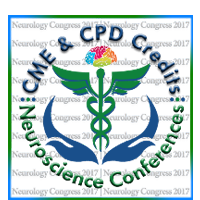
Giovanni Antioco Putzu
Casa di Cura Sant’Elena, Italy
Title: Clinical, Histopathological and Neurophysiological differential patterns in Sporadic Inclusion-Body Myositis and Hereditary Inclusion body Myopathy
Biography
Biography: Giovanni Antioco Putzu
Abstract
Sporadic Inclusion-Body myositis (s-IBM) represents a form of chronic polymyositis, unresponsive to corticosteroids, affecting patients over 50. In contrast, hereditary Inclusion-Body Myopathy (h-IBM) strikes younger patients. Clinical hallmark of both forms are distal muscle involvement, whereas salient histopathological features are characterised by inflammatory exudates (only in s-IBM), rimmed vacuoles, eosinophilic cytoplasmic inclusions, 16-18 nm tubulofilamentous inclusions in both cytoplasm and nucleus, small amyloid deposits near or within vacuoles and within the nucleus as well, nuclear-membrane abnormalities and nuclear breakdown and other findings such as angulated and round fibres, necrotic-regenerative fibres and even ragged-red fibres. None of these hallmarks are specific of IBM and can be also found in a great number of muscle and even nerve pathologies such as Oculopharyngeal muscular Distrophy (OPMD), Desminopathies, Glycogenosis, Ceroid lipofuscinosis, ALS, Post-polio syndrome, Paraneoplastic neuropathies, and many others that we will be illustrated and discussed in the presentation.
Neurophysiological findings of s-IBM and h-IBM are not specific and include mixed myogenic and neurogenic (axonal) features.
In conclusion, s-IBM and h-IBM are an interesting group of muscle pathology with a complicated differential diagnostic process. It also represents a challenge to both Clinicians and Researchers involved in the field of neuromuscular disorders.

